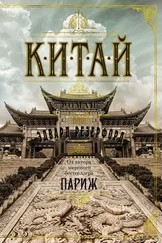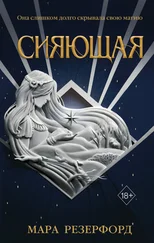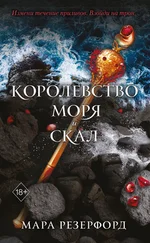Edward Ruthurfurd

RUSSKA
This book is respectfully dedicated to those now rebuilding the monastic community of Optina Pustyn.
RUSSKA the PLACE
The two settlements named Russka in this story – the first in the south and its successor in the north – are both imaginary, although a small town bearing this name did once exist elsewhere in former times. Each of these imaginary Russkas is an amalgam of features drawn from their respective regions. In the northern Russka, where the principal action is set, the old town and monastery somewhat resemble, on a smaller scale, the ancient city of Suzdal, where part of the book was written. The magic springs I saw by the old fortress of Izborsk, in the north-west. The Bobrov country house is not unlike the country estate of the Pushkin family.
RUSSKA the NOVEL
Russka is a historical novel. All the families of Bobrov, Suvorin, Romanov, Ivanov, Karpenko, Popov, and the character Pinegin are fictitious. But in following their stories down the centuries, I have set them among people and events that did exist, or could have done.
For many reasons, despite the ever growing fascination with Russia in the west, the history and geography of this huge and sweeping land are only slightly familiar to most readers. Insofar as possible therefore, I have tried to provide a historical framework for the reader that I hope will be informative without being burdensome. Here and there I have allowed myself some very small telescoping of events to simplify the narrative, but none, I believe, that does violence to history.
In an attempt to convey something of the astonishing richness and the special character of Russian culture, I have felt free to draw extensively from the wealth of Russian folklore and literature. The result, for better or worse, is certainly my own; but it is my hope that those familiar with these subjects may find that they recognise some old friends in these pages.
There is no agreed system for writing Russian words in English. In each case I have therefore chosen what I believe to be the most familiar, or that most currently used.
In cases where place names change, I have again used my own judgement. For nineteenth century Vilna, in Lithuania, I have used today’s more familiar Vilnius. Present day Istanbul remains Constantinople throughout the narrative.
The placing of the stress on Russian words is notoriously confusing. Readers may care to know that the correct stressing for the main families in the story is as follows:
Bobróv
Románov
Ivánov
Suvórin
Karpénko
Popóv
Abrámovich
Pinégin
There is one other peculiarity of Russian transliteration: sometimes the letter written e is pronounced o as if of , or yo as in your . Certain important words and names that appear in the book are therefore pronounced as follows:
chernozem – chernozyóm
Potemkin – Potyómkin
Pugachev – Pugachóv
Rublev – Rublyóv
This book was written in the period 1987–91, in the course of which I visited Russia upon numerous occasions totalling many months. Travelling individually, I was able, besides my stays in Moscow and Leningrad, to visit the north-west as far as Kizhi, the Baltic, the ring of medieval cities around Moscow, Kiev, Chernigov and the Ukraine. My southern travels also took in Odessa, the Crimea, the Cossack country of the Don, the Caucasus Mountains, and the desert cities of Khiva and Samarkand. Thanks to friends I was able to visit the town of Gus chrustalnyi, in the region where the fictional northern Russka is set. The Writers Union also kindly took me to the ancient city of Riazan (Ryazan) and the still older site of the former city, destroyed by the Mongols – a haunting experience.
But most important of all was the day when, thanks to the Writers Union, I visited the recently reconstituted monastery of Optina Pustyn. We arrived, as it happened, just after the monks had discovered the remains of the famous nineteenth-century elder, Father Ambrose, which event was being celebrated the morning when we arrived. It was an event of great simplicity, but one which, I like to think, vouchsafed an outsider a precious glimpse of the real Russia – and which convinced me, once and for all, that if we hope to understand anything of this extraordinary country’s present and possible future, it is of great importance to delve, as far as we may, into her past.
I am deeply indebted to Doctor Lindsey Hughes of the School of Slavonic and East European Studies, University of London, and to Miss Cathy Potter of Yale University and the University of Wisconsin who between them read the entire manuscript of this book and corrected errors. Any errors that remain, however, are mine and mine alone.
Thanks are also due to Professor Paul Bushkovitch, of Yale University, who set me upon my path.
I am most grateful to Mr E. Kasinec and the staff of the Slavonic Division of the New York Public Library; to the staff of the Butler Library at the University of Columbia; and to the staff of the London Library for their unfailing help and courtesy. Special thanks are also due to the staff at the Synod of Bishops Russian Orthodox Church Outside of Russia, New York, and the staff at St Vladimir’s Seminary, Crestwood, who helped me to obtain many books.
Thanks are also due to Mr John Roberts, who kindly provided me with helpful contacts and to Mr Vladimir Stabnikov of the Writers Union in Moscow, who greatly facilitated my travels in Russia and gave much useful advice and encouragement. I am grateful also to the staff of the Hermitage Museum in Leningrad who so kindly arranged private tours for me.
There are also many other people, too numerous to mention here, both in the west and in the USSR who, in a private capacity, gave me great help and hospitality for which I shall always be very grateful.
I am most fortunate in having an agent, Gill Coleridge, and two editors, Betty Prashker of Crown Publishers and Rosie Cheetham of Century, whose patience, encouragement and unstinting help made this book possible.
I am deeply grateful to my wife Susan for her kindness and patience during the long process of this book’s gestation. And once again, special thanks are due to Alison Borthwick for her expert map.
Finally, I should like to express a special debt to the Archimandrite and monks of the monastic community of Optina Pustyn, for affording me an unforgettable glimpse of Russia.
AD 180
The steppe was quiet that night. So was the forest.
Softly the wind moved over the land.
In the hut – one of six that nestled together in the little hamlet by the river – the sleeping mother lay with her child.
Читать дальше
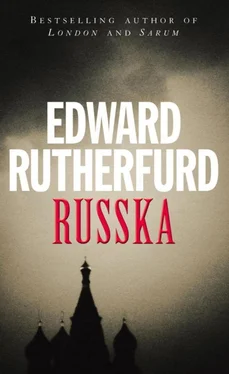




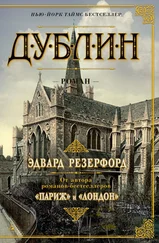
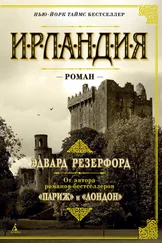
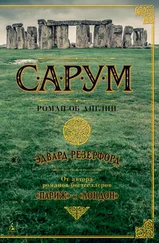
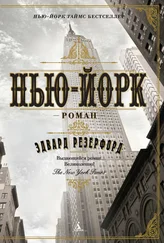
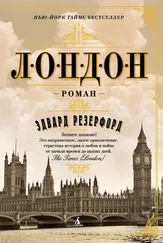
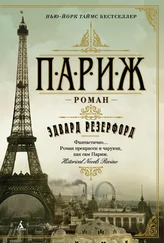
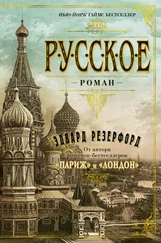
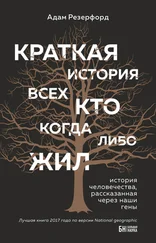
![Эдвард Резерфорд - Королевский лес. Роман об Англии [litres]](/books/422880/edvard-rezerford-korolevskij-les-roman-ob-anglii-thumb.webp)
